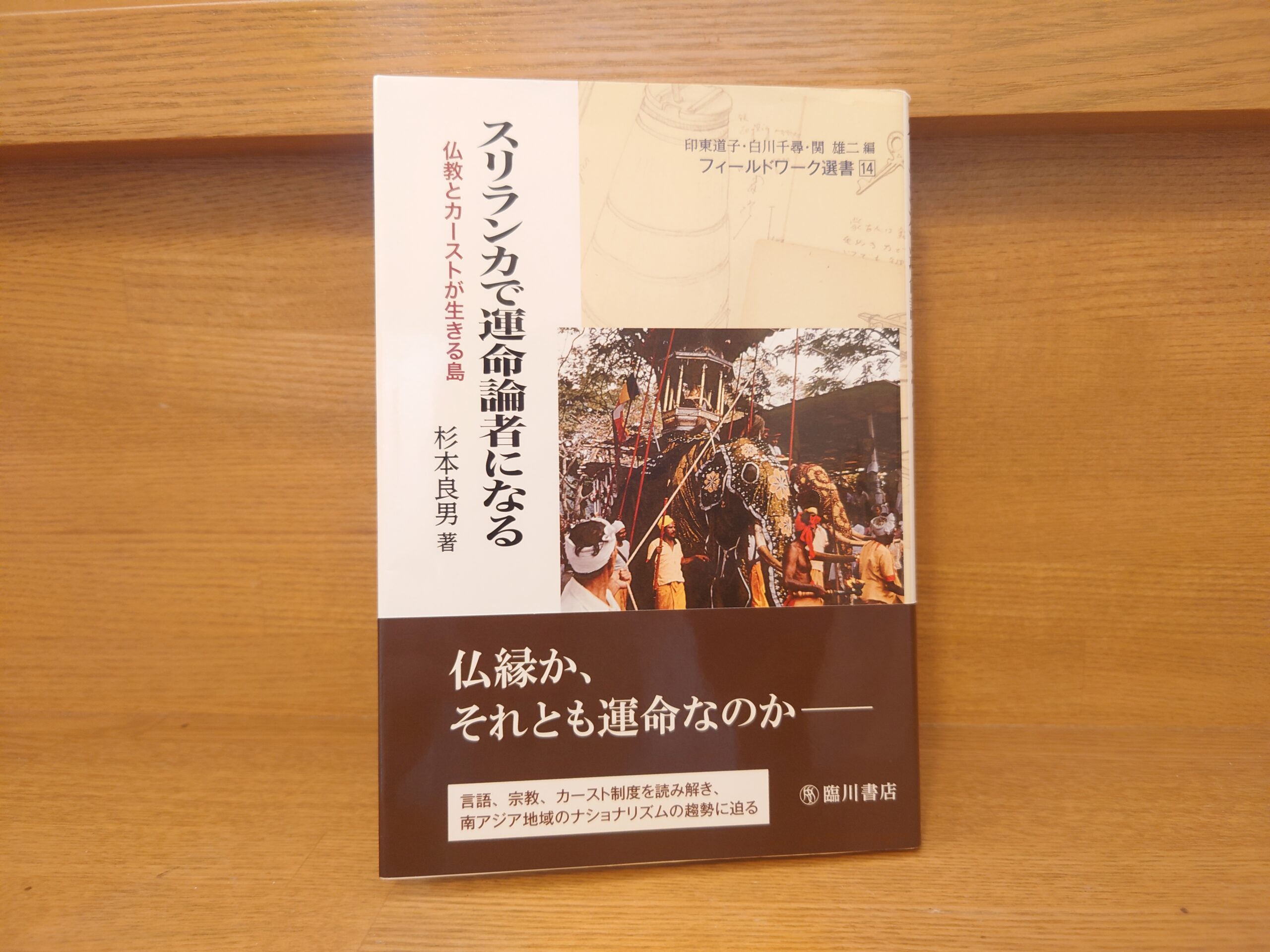Yoshio Sugimoto, "Becoming a Fatalist in Sri Lanka: An Island of Buddhism and Caste" Summary and Comments - Recommended for learning about Theravada Buddhist funerals and local religion and life!
This issue features "Fieldwork Selection 14: Becoming a Fatalist in Sri Lanka, an Island of Buddhism and Caste," by Yoshio Sugimoto, published by Rinkawa Shoten in 2015.
Let's take a quick look at the book.
Is it fate, or is it destiny?
AmazonProducts Page.
Through a series of miraculous encounters, the anthropologist became a fatalist. During his 30 years of field research in Sri Lanka and India, he entered a world of ideology and politics, where power and intrigue abound. While deciphering the languages, religions, and caste systems that form the basis of society, this book explores the trends of nationalism in the South Asian region and the lives of the people there.
This book is a valuable work that provides an insight into the religion of Sri Lanka and the real lives of the local people.
The religion of Sri Lanka is Theravada Buddhism, which is different from the Mahayana Buddhism that was introduced to Japan. The Theravada Buddhism itself is not discussed here, but it is often said that Theravada Buddhism is characterized by its beliefs being close to the teachings of the primitive Buddhism that originated in India.
Sri Lanka is often seen as a so-called holy land of Theravada Buddhism, but this book discusses how Buddhism is actually practiced there and how the local people interact with the Buddhist cult.
This book is a work centered on "fieldwork," as the title of the book suggests. The author states this in the "Introduction" as follows
Anthropology is an academic discipline that is uniquely "grounded" in the reality of the lives of people living "here and now." Therefore, it is essential for anthropologists to interact directly with people from other lands who have flesh and blood through "fieldwork. Anthropology is also a study of repeated encounters and partings with people. This is because anthropology is a study in which the researcher connects with strangers in a strange land, and in turn, tries to think about the various problems facing humanity and human beings. An anthropologist's thinking always starts from the place of research, maintains a foothold in the place of research, and returns to the place of research. And they continue to think even after returning to their own place of origin. Fieldwork" is not merely an activity to collect materials; it is the alpha and omega of anthropology. (omitted).
In the chapters of this book, I would like to talk about three chapters and nine sections, focusing on my experience in Sri Lanka since 1981, while also presenting my subsequent research experience in India as "comparative" material.
Rinkawa Shoten, Yoshio Sugimoto, "Fieldwork Selection Book 14: Becoming a Fatalist in Sri Lanka: An Island of Buddhism and Caste," p. 8-10.
The author actually goes to the region and meets with the people there to see the local religion and lifestyle culture itself. The fascination of this book is that it allows the reader to see the subtle issues and ambiguous aspects of the region that cannot be seen in the literature alone.
It was especially interesting to hear about funerals, marriages, and other rituals in Sri Lanka.
People often say, "Japanese Buddhism is strange because primitive Buddhism does not hold funerals. That is not Buddhism. However, in both Thailand and Sri Lanka, funerals are conducted by Buddhist orders. Especially here in Sri Lanka, annual memorial services are also held, revealing the strong connection between death and Buddhism.
Although it has been often criticized that "funeral Buddhism is no good," life and death are essentially one and the same. Life exists because there is death, and death exists because there is life. It is important to question the nature of life through death. Funerals are an important place to question "life" through "death. There is criticism of funeral Buddhism, but this is the result of facing the most solemn issue of life, "death," head-on.
It was very interesting to see from the perspective of fieldwork that Buddhism is deeply connected to the issue of "life and death" in Sri Lanka as well.
Another gratifying aspect of this book is that you can learn about Sri Lanka's religion and real life not only from a religious perspective, but also from a political and economic one. If you look at Sri Lanka only as "a devout Buddhist country," you will be mistaken. In fact, the background of Sri Lanka is quite complex. It is also fascinating to learn about the complexity of the society.
This is a good book I have come across. It has made me more and more interested in Sri Lanka. I think this book will be a great inspiration for those who actually visit Sri Lanka.
I highly recommend this book. Why not pick up a copy?
This is "Yoshio Sugimoto, "Becoming a Fatalist in Sri Lanka: An Island of Buddhism and Caste" - Recommended for learning about Theravada Buddhist funerals and local religion and life! This was.
Next Article.
Click here to read the previous article.
Related Articles





































